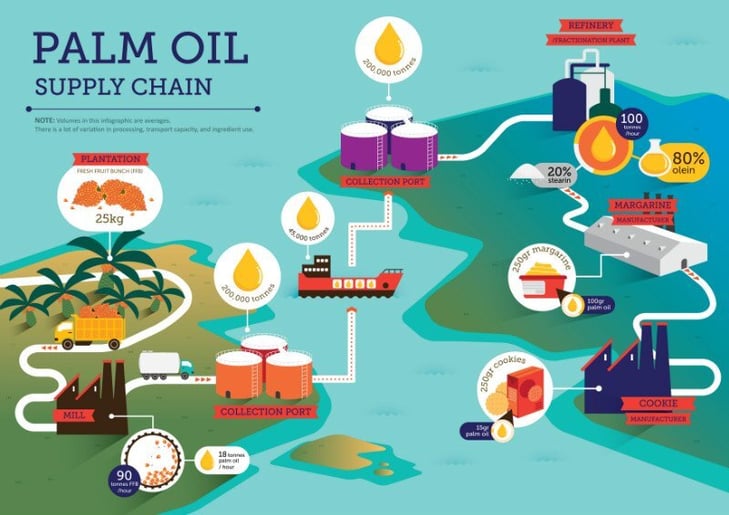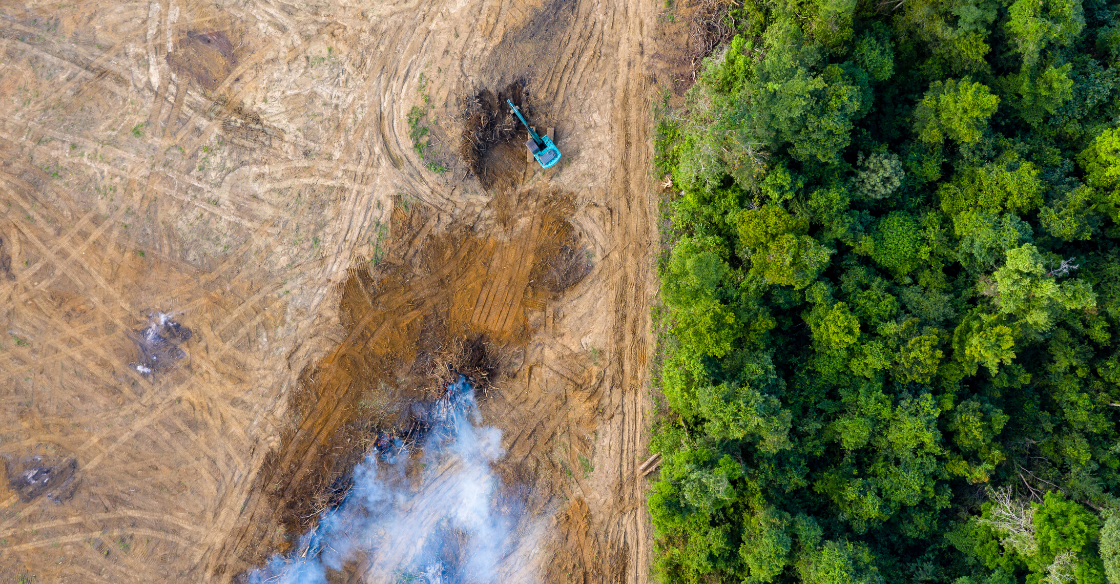What is Palm Oil?
Palm oil is a type of vegetable oil derived from the fruit of the oil palm tree that is used in many consumer products worldwide, ranging from foodstuffs to biodiesel. More than 50% of consumer products on grocery store shelves contain palm oil, palm kernel oil, or compounds derived made from those oils
.
Palm Oil Market
Palm oil is a highly-saturated fat, which makes it attractive to food companies for using in place of trans-saturated fats that many consumers seek to avoid. It is also a commonly used cooking or frying oil, with many fast food companies consuming large volumes. Outside of food products, palm oil is used in place of petroleum oil to produce many oil-based chemicals and compounds, and is a common ingredient in cosmetics and personal care products like shampoo and toothpaste. As of 2015, most palm oil in the global market comes from Indonesia and Malaysia, which produce around 53% and 32% of the global total, respectively.
Current Problems
Palm and palm kernel oil are somewhat controversial, and are increasingly a concern for consumers due to significant social and environmental issues associated with the growing process. Oil palm trees grow best in tropical climates, particularly those that are home to tropical rainforests and peat bogs. In Indonesia and Malaysia, deforestation of ecologically important rainforest results in destruction of habitat for endangered species such as orangutans and Sumatran tigers, loss of food sources and sacred sites for indigenous people, and release of high quantities of carbon dioxide trapped in tree growth. In addition to tropical rainforests being cut down, peatlands are drained and burned for the planting of oil palms, releasing even more greenhouse gases in the process than normal tropical deforestation. Over 100,000 deaths occur yearly in Southeast Asia due to haze exposure from landscape fires such as peat burning. Furthermore, the planting and harvesting of oil palms faces serious social issues, such as native communities being deprived of their land without compensation, labor under exploitative conditions, and child labor on the plantations is not uncommon.

RSPO Certification
To address the issues surrounding palm oil production, the Indonesia and MalaysiaRoundtable on Sustainable Palm Oil (RSPO) was founded. RSPO is a nonprofit organization that consists of representatives from all parts of the palm oil supply chain, from growers to sellers of consumer goods, as well as investors and other non-governmental organizations (NGOs) concerned by the problems facing palm oil. RSPO has put together a set of criteria addressing environmental and social impacts, through which palm oil growers can become certified as “sustainable”, and has outlined multiple methods by which sustainable palm oil can be incorporated into palm oil supply chains.


